News
-
27/10/2021Iberdrola and AFEC have joined forces to promote sustainable, electric home climate control in Spain Iberdrola and the Spanish Association of Climate Control Equipment Manufacturers (AFEC) have entered into a strategic alliance to promote the use of sustainable electric climate control in our country. To do this, they have designed a work plan that focuses on two lines of action: Promoting clean climate control technologies based on heat pumps in homes and companies; and education and training, preparing trade professionals to cover the expected increase in demand in the short and medium-term. The alliance will enable them to pool the knowledge and skills of two organisations committed to the energy transition and the decarbonisation of the economy as a way to convert the climate control systems in our country's buildings to use clean energy. Both organisations are also working with government bodies to drive the development of this technology. According to Luis Buil, global manager for Smart Solutions at Iberdrola, "AFEC is the ideal ally to further the decarbonisation of climate control in both homes and businesses with solid commitments and specific initiatives based on clean, innovative and competitive technologies. The building sector is one of the segments with the greatest need for electrification, as it is one of the main sources of CO2 emissions and because we already have efficient solutions to undertake this energy transformation, which will also boost an important part of our local industrial sector and employment". AFEC chairman Luis Mena says “the collaboration with Iberdrola is key to publicising the benefits of heat pumps and encouraging their use. This technology is a pivotal part of decarbonisation policies and contributes to achieving the triple objective of EU energy and climate policies in relation to increasing energy efficiency, using energy from renewable sources and reducing CO2 emissions.” The residential sector is responsible for 30 % of all CO2 emitted in the European Union, of which heating accounts for 12 %. In Spain, 41 % of total energy demand is for climate control (heating, cooling and domestic hot water), making electrification a matter that must be addressed. At the moment, 73.75 % of boilers in our country, that is around 6.5 million, are gas or oil-fired; almost 2 million are gas and oil-fired condensation boilers while only 140,000, that is 1.59 %, are heat pumps that use renewable energy. Groundbreaking technology for a sustainable future Classified as a renewable technology -because it captures energy from the outside air - and efficient - because it consumes a quarter of the energy, in the form of electricity, to provide the same amount of heat- aerothermal heating is undergoing a real revolution. This air conditioning technology is aligned with the three European and national objectives for 2030, to reduce CO2 emissions, improve energy efficiency - heat pumps are four times more efficient and produce 70 % less CO2 emissions than a conventional boiler, and they use clean, renewable energy. The new energy model encourages more personalised products and services that are adapted to the way people use energy and greater energy efficiency. To be able to provide innovative solutions, Iberdrola, through Smart Clima, offers comprehensive, personalised services to upgrade climate control with efficient equipment in both private homes and multi-household buildings, leading to savings and more sustainable energy consumption. Green investments to promote economic recovery Iberdrola has been leading the energy transition for two decades, acting as a key driving force to transform the industrial fabric and in the green recovery of the economy and employment. The company has thus launched a historic investment plan worth 150 billion euros over the next decade, 75 billion euros by 2025, to triple its renewable capacity and double network assets and take advantage of the opportunities offered by the energy revolution that the world's leading economies are facing. READ MORE
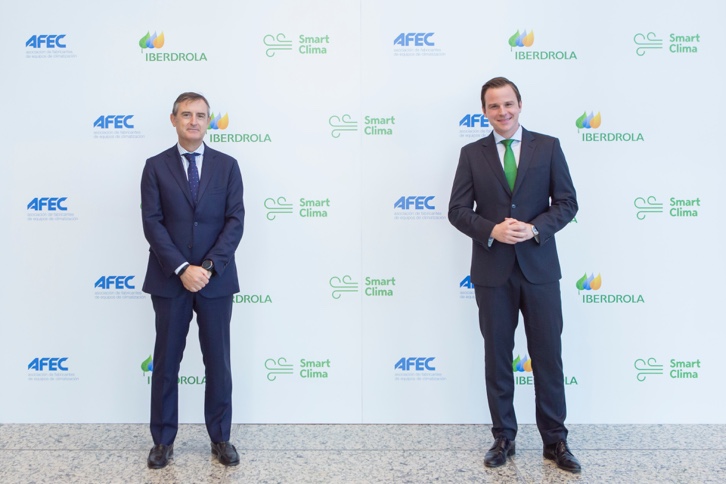
-
27/10/2021Iberdrola expands investments to €7 billion (+6%) - net profit reduces to €2.4 billion (-10.2%), negatively affected by high energy prices, new taxes, and lower extraordinary items Iberdrola recorded a strong performance in the first nine months of 2021. On the eve of COP26, where the company will participate as a principal partner through ScottishPower, Iberdrola reaffirmed its sustainability strategy, based on electrification and supported by a strong investment effort, which increased by 6% during the period, to €7.03 billion, with 77% being in international markets. Some 90% of investments were allocated to the development of new renewables and smart grid projects. Investment in networks increased by 27% to €3.18 billion. Investments in Spain amounted to €1.59 billion, up 21% from the same period of 2020 and have been directed towards the development of new renewable capacity (€792 million); smart grids (€445 million); and maintenance and other investments (€356 million). The Chairman of Iberdrola, Ignacio Galán, stated that “we remain committed to our sustainability strategy based on the fight against climate change and the creation of wealth and employment in the communities where we operate, for the benefit of our stakeholders.” Between January and September 2021, the company posted €8.16 billion (+10.7%) gross operating profit (EBITDA), driven by the United States and Brazil. Of the total, 87% came from networks and renewables. Of note is the negative impact of higher energy prices in Spain and the UK, as well as regulatory measures in Spain. Networks EBITDA grew by 11.5% to €3.93 billion, due to the strong operating performance of the business in all the countries where the company operates, thanks to investments made and tariffs. Excluding the impact of COVID-19 and the exchange rate, EBITDA would have increased by 14%. Renewables increased its EBITDA in the period by 70.9% to €3.04 billion, as a result of increased production, due to the higher installed capacity delivered by its investment plan and the improvement in load factors. The area also reflects the positive impact of the reversal of the 2013 – 2016 hydroelectric levy in Spain. Generation and Supply posted €1.08 billion (-44.7%) EBITDA, impacted by high prices in the electricity markets of Spain and UK, the cold spells in Spain, Texas, Mexico and other international markets in the first quarter of the year, and the impact of RDL 17/2021 in Spain. In Spain, this business area recorded revenues of €9.14 billion (+16.1%), but reduced its EBITDA by 60.3% (€711 million) and posted a net profit of €76.3 million (-87%) - less than 1% of revenues - as a result of high electricity prices due to the effect of gas prices and with sales to customers on fixed prices. As a result of maintaining prices for fixed rate customers, these consumers have benefited from savings of more than €2 billion compared to the cost that the high prices of the pool would have caused them. Adjusted net profit to September grew 5.2% to €2.68 billion. Effects such as the change in taxation in Spain and UK, the impact of RDL 17/2021 (-EUR 114 million), as well as other extraordinary items (COVID), brought reported net profit to €2.4 billion, 10.2% lower than in the same period of the previous year. In the period, Iberdrola has continued to consolidate a business model and finance profile protected from inflation and the increase in commodity prices. 70% of its revenues come from A-rated markets. In Spain, 100% of production is sold for 2021 and 96% for 2022; in the United Kingdom 100% of production is sold for both years.Also, procurement for 2021 and 2022 is closed and protected from the current tensions in commodity prices. 82% of installed capacity planned by 2025, under construction or secured Iberdrola's investment plan increased the company's operational renewable capacity to more than 37,300 MW as of September. In the last 12 months, Iberdrola has commissioned 3,738 MW of green capacity, of which 1,228 MW onshore wind; 1,519 MW solar photovoltaic; 880 MW hydroelectric (Tâmega complex in Portugal); and 112 MW battery storage. The company is currently progressing with the construction of 7,200 MW. Of these, 2,600 MW are offshore wind projects. 80% of these projects are being built mainly in international markets outside Spain. In Spain, renewable capacity installed over the last 12 months stands at 2,350 MW. This figure is larger than the sum of the capacity installed by the next three largest developers in Spain. Currently, some 1,500 MW are under development: 375 MW onshore wind and 1,125 MW solar photovoltaic. Iberdrola is committed to installing and commissioning a total of 27,600 MW in the 2020-2025 period, with the aim of reaching 60,000 MW of renewable capacity. As of September 2021, 22,686 MW are under construction or at a high level of maturity, which means that 82% of the new capacity planned for the period has been secured. The group's project pipeline amounts to 81,800 MW. Of these, 22,800 MW are offshore wind; 17,700 MW onshore wind; 37,000 MW solar photovoltaic; 3,400 MW hydroelectric and 900 MW batteries. To the opportunities in new growth platforms such as Poland, Sweden, Ireland, Japan, Korea, Taiwan and Australia, we have to add those in established European countries - the United Kingdom, Germany, France and Iberia - the United States and Brazil. To meet its investment commitment, Iberdrola has made purchases from suppliers totalling more than €22 billion since the start of the pandemic. Platforms for growth: offshore wind, PNM Resources and green hydrogen One of the group's main growth platforms is offshore wind. The company already operates 1,300 MW of this technology and is progressing construction of 2,600 MW in several projects, namely Saint Brieuc (France), Vineyard Wind 1, Park City Wind (United States) and Baltic Eagle (Germany), which will double its offshore wind capacity in the coming years. Also, it has just exercised the option to develop Windanker offshore wind farm, forming part of the company's Baltic Hub which will have over 1,000 MW total installed capacity. Iberdrola's strategy in offshore wind will be driven by the auction processes planned in the short and medium term in the main markets where it operates or is positioned: Europe, the United States and Asia Pacific. The company currently has 2,900 MW of offshore wind under construction or secured to operate between 2023-2026 in the US and Europe. Another of its growth platforms - the acquisition of PNM Resources in the United States - is expected to be completed before the end of the year. The deal will consolidate Iberdrola as one of the largest distributors and the third largest renewables operator in the US market. Progress is also being made in the development of new technologies, such as green hydrogen. The company has more than 60 projects in eight countries - Spain, United Kingdom, Italy, Brazil, United States, Mexico and Australia - with a portfolio that will require investments of more than €3 billion by 2030 for the production of 134,000 tonnes per year. Smart customer solutions also point to growth opportunities with the expansion of smart-smart solutions at home and electric mobility: Smart Mobility bookings have tripled, Smart Solar more than doubled, and Smart Home and Smart Climate growing by 1.2x and 1.5x, respectively. Financial strength, leadership in green and sustainable finance Iberdrola has accelerated the pace of its investments, while maintaining the strength of its balance sheet. The company has increased its operating cash flow by 7% to €6.41 billion. It also strengthened its financial ratios after increasing liquidity at the end of September to more than €19 billion, covering 19 months of financing needs. With an average maturity of more than 6 years, fixed-rate debt amounts to approximately 68%, protecting the balance sheet against inflationary processes. The group remains the leader in green and sustainable financing, with €35.8 billion, and consolidates its position as the world's leading corporate issuer of green bonds. During the period, Iberdrola continued to make progress in its sustainability strategy, based on the electrification of the economy and geared towards the fight against climate change and the creation of wealth and employment in the communities where it operates. And so, in addition to leading green and sustainable financing, its own CO 2 emissions to September were reduced to 53 g/kWh, in line to becoming an emissions-neutral company in Europe by 2030. Iberdrola is helping its value chain to develop rigorous sustainability policies, with procurement from suppliers contributing to maintain 400,000 jobs worldwide. In Spain, the company also maintains its environmental leadership. During the nine months of 2021, CO2 emissions have been reduced by 24% to 60 gCO2 /kWh. This figure represents an emissions-free production ratio of 87% of Iberdrola's total domestic production. In 2020, Iberdrola's fiscal contribution in Spain amounted to €3.38 billion and represented 45% of the group's total worldwide while revenue in Spain over the period represented approximately a third of total revenue. The corporate tax rate is over 21%. Since the start of the pandemic, €6 billion of contract awards have been made in Spain to a total of 5,500 suppliers that have over 85,000 employees. READ MORE
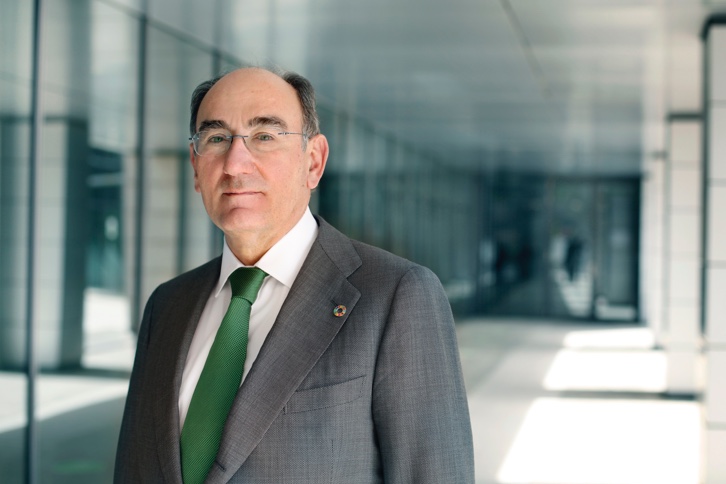
-
27/10/2021Iberdrola appoints Armando Martínez as managing director of Businesses Based on a report from the Appointments Committee, Iberdrola's chairman and CEO, Ignacio Galán, has designated Armando Martínez as the Iberdrola group's new managing director of Businesses, a position he will take over on 1 November 2021, replacing Francisco Martínez Córcoles. Likewise, Francisco Martínez Córcoles has been reclassified as an external board member by the Appointments Committee. Born in Miranda de Ebro, Armando Martínez is an industrial engineer. He specialised in electricity at the University of Valladolid, and has been the Network Business manager (Iberdrola transport and distribution) since 2016. Armando Martínez has had an outstanding career, spending three years at the power plant in Santurce (Biscayne) followed by a period with Iberdrola Mexico from 2002 to 2014 where he eventually became managing director. He has also been a driving force behind the Global Smart Grids Innovation Hub in the Basque Country, a global technology centre that will define the electricity grids of the future. Also, having been nominated by the chairman and CEO and approved by the Appointments Committee, Elena León will become manager of Iberdrola group's Networks business, a position she will take over from Armando Martínez on 1 November 2021, to whom she will report. Born in Madrid, Elena León has a degree in advanced engineering, specialising in Roads, Canals and Ports from the Higher Technical School of Engineering in Madrid. She earned a Masters degree in Water Resources Planning and Management at Colorado State University, the USA, and an Executive MBA from the Madrid Business Institute. She joined Iberdrola in 2000 and will become part of the company's Senior Management on 1 November. Board of Directors At its meeting of 26 October, the Board of Directors of Iberdrola decided to appoint, at the proposal of the Chairman and CEO and following a report from the Appointments Committee, Anthony L. Gardner as second deputy chairman of the Board of Directors, and Juan Manuel González Serna as first deputy chairman of the Board of Directors. Anthony L. Gardner, born in Washington DC, studied Public Administration at Harvard University and International Relations at Oxford University. He is highly experienced in the energy sector and was US Ambassador to the European Union from 2014 to 2017. The Board has also appointed María Ángeles Alcalá Díaz as an independent director by co-optation procedure, at the proposal of the Appointments Committee, to fill the vacancy created by the resignation of José Walfredo Fernández, and for the remaining period until the next General Shareholders' Meeting. Also at the proposal of the Appointments Committee, María Ángeles Alcalá Díaz was appointed to the Audit and Risk Supervision Committee for a four-year term. María Ángeles Alcalá hails from Albacete. She holds a PhD in Merchantile Law from the University of Castilla- La Mancha, where she is a professor, and was Director-General of the Directorate General of Registries and Notaries between 2009 and 2011. At the Board meeting, at the proposal of the chairman and chief executive officer, and following a report from the Appointments Committee, the director and second vice-chairman, Anthony L. Gardner, was appointed as a member of the Executive Committee. In the meantime, the Board has accepted the resignation of Samantha Barber , with effect from the end of the meeting, from her position of board member of the company and a member of its Executive and Sustainable Development Committees. Samantha Barber has notified Iberdrola that the sole reason for her resignation is that she has upcoming professional commitments that are incompatible with the position of a board member for the Company. READ MORE
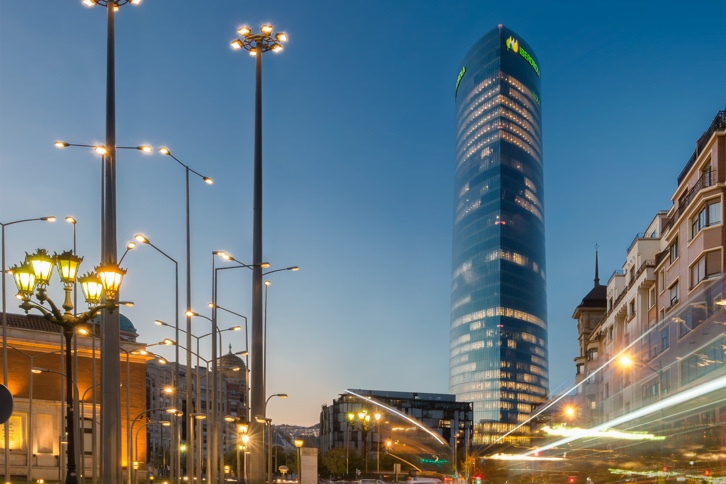
-
25/10/2021Iberdrola and Toyota team up to boost electric mobility in Spain Iberdrola and Toyota team up to accelerate electric mobility in Spain. The energy company will offer owners of electric vehicles - Proace Electric Van and Proace Verso Electric - and plug-in hybrids - Prius Plug-in or RAV4 Plug-in - a turnkey package. This includes the installation of a charging point -Pulsar Plus Wallbox - of up to 22 kW in their home, with a three-year guarantee on both the installation and the charging equipment, and six months' free charging on Iberdrola's public network via its app. In turn, Iberdrola offers them its Electric Vehicle Plan, which allows them to save on charging compared to a combustion vehicle, with 100% renewable energy, without a bill and without lock in and at stable prices. The agreement will help bring electric and connected mobility closer to the end user, using the electric vehicle as the link. In addition, it will collaborate in advancing the electrification of the fleets operated by SMEs in the sector as they adapt to a more sustainable mobility model. The alliance is part of Toyota's aim to further electrify the market, a task it has been working on for more than 25 years: it launched the first generation Toyota Prius in 1997 and has since popularised hybrid-electric technology and has gone on to incorporate others to offer hybrid electric, plug-in hybrid, battery electric and fuel cell electric models. For its part, Iberdrola remains committed to the electrification of transport in its transition strategy towards a decarbonised economy, as a key lever for reducing emissions and pollution, as well as for a green recovery in the post-COVID world. Electric mobility and green recovery The electricity company is rolling out a sustainable mobility plan , with an investment of 150 million euros, with which it will step up the deployment of charging points for electric vehicles in the coming years. The initiative entails installing around 150,000 charging points in homes, companies and on the public road network in cities, as well as on the main motorways over the coming years. The commitment to deploy high-efficiency charging points will take the form of the installation of ultra-rapid (350 kW), super-rapid (150 kW) and rapid (50 kW) stations. Iberdrola is aware of the need to boost electric mobility in Spain through coordinated, effective action involving the major players. In this regard, the company has already completed more than 50 infrastructure deployment agreements with administrations, institutions, companies, service stations, dealers and electric vehicle manufacturers. The company was the first Spanish company to sign up to The Climate Group's EV100 initiative, with the aim of accelerating the transition to electric vehicles, committing to electrify its entire fleet of vehicles and facilitate charging for staff in its businesses in Spain and the UK by 2030. READ MORE
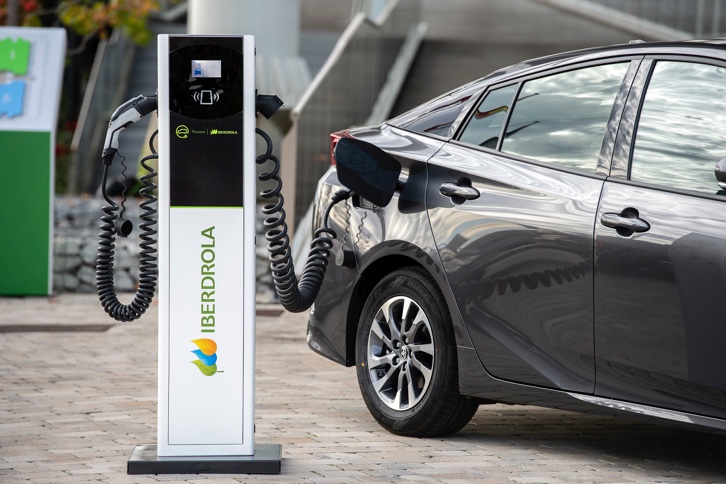
-
25/10/2021Ignacio Galán recalls that "sustainability was important to Iberdrola long before ESG criteria became commonplace" The Climate Summit will kick off on 31 October in Glasgow (Scotland). With this in mind, the Center on Sustainable Investment and the Columbia University Climate School have organised the virtual conference Corporate Alignment to the Paris Agreement: From Ambition to Action, which was inaugurated by the chairman of Iberdrola group, Ignacio Galán. Iberdola chairman spoke on the panel entitled Net-Zero Commitments together with Jeffrey Sachs, Professor and Director of the Columbia Center on Sustainable Development. The pair discussed many topics, such as the prospects for the forthcoming COP, the importance of the energy transition and the prerequisites for it to occur. Looking ahead to the climate meeting in Glasgow, Galán pointed out that many positive steps had been taken in recent decades, which was something to be optimistic about, although he warned that "we are at a critical juncture; we need to be carbon neutral in 30 years" to avoid "dramatic consequences". That is why, he stressed, “we need to decarbonise now”. In this context, Professor Sachs pointed out that the Iberdrola Group is "at the leading edge of the decarbonisation challenge" and he asked about the reasons for the success of the company's strategy, as Iberdrola has now become one of the largest energy suppliers in the world. Ignacio Galán referred to the group's pioneering commitment to electrification 20 years ago and the nearly 120 billion euros invested in renewable energy and grids. "And we will do it again, with an investment plan of 150 billion euros over the next few years", he added. In terms of key achievements, Galán recalled that sustainability has played an important role for Iberdrola long before ESG criteria moved into the mainstream. When it comes to ensuring that businesses are prepared to play their part in decarbonisation, Ignacio Galán emphasised the importance of regulatory stability and predictability in order to avoid undermining investor confidence. "We do not have the money in our pockets, we have to get it from the market and we have to be convinced that the investment is not only good for the planet and the countries, but that it also gives a reasonable return," he explained. Galán called on regulators to be "ambitious and consistent in their climate commitments," to avoid rule changes in particular circumstances, and to streamline the administrative processes for new renewable energy projects. "Most countries will not fulfil their climate commitments unless these processes are accelerated", he cautioned. READ MORE
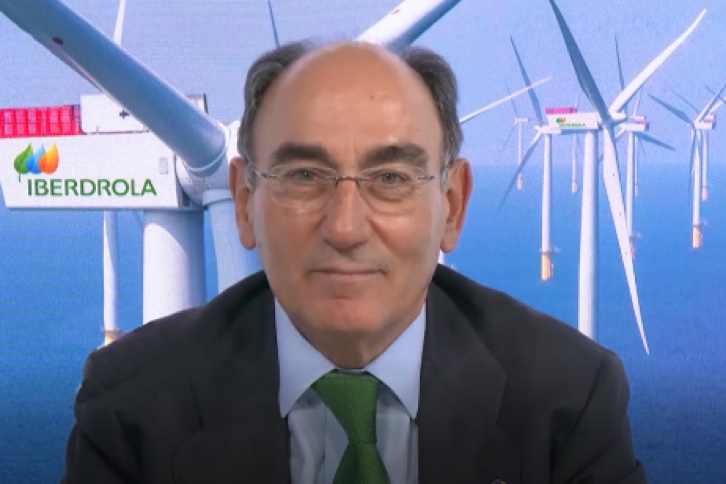
-
22/10/2021Iberdrola, in the ‘top 10’ in the Global Clean Energy Index Iberdrola remains in the ‘top 10’ of credit rating agency Standard & Poor’s (S&P) Global Clean Energy Index, which is deemed as the number one sustainability benchmark. In fact, this index is used by numerous funds when drawing up their investment portfolios. This ranking is designed to measure the performance of companies with business activities related to clean energy in developed and emerging markets. In its latest edition, S&P explains that it has reviewed the criteria “to improve the diversification of the index, enhance transparency, further reduce the index's carbon footprint and bring the methodology into line with market trends and sustainable investment standards”. This has resulted in companies such as ENEL, Nextera and the Spanish group Audax Renovables being excluded from the list due to their failure to fulfil certain parameters. Iberdrola's continued presence in this index is proof of the relevance of our companies commitment to renewable energies and sustainability. Our Group has incorporated the UN's Sustainable Development Goals (SDGs) into its corporate strategy and sustainability policy, and it is a benchmark for its direct contribution to these global goals, particularly in its contributions in the field of energy and climate change . This rating forms part of the indices prepared by S&P Dow Jones Sustainability Index, the largest worldwide resource for essential index-based issues, data and research and the principal administrator of basic financial market indicators such as the S&P 500 and the Dow Jones Industrial Average. It is worth stressing that Iberdrola is the only European utility company included in all 21 editions of the Dow Jones Sustainability Index due to its strong commitment to sustainability and in recognition of its strategy, which is successfully responding to the main economic, environmental and social challenges faced by international energy policy. Added to this is the Iberdrola Group's presence in the main international sustainability indexes such as FTSE4Good, MSCI, Sustainalytics, ISS-oekom, Bloomberg GEI, Euronext Vigeo Eiris índices, Global100, EcoVadis, among others. READ MORE
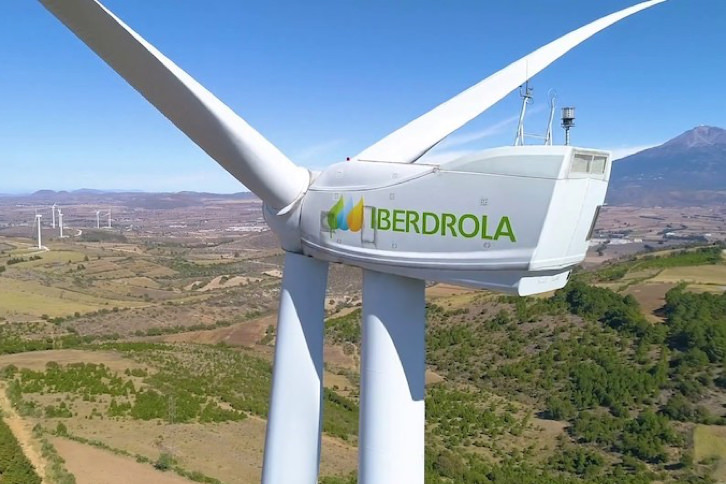
-
21/10/2021Iberdrola wants to support the competitiveness of industry by absorbing electricity price rises and the Government must withdraw the Royal Decree and the Law Iberdrola is once again demonstrating its commitment to Spanish society. This morning, the company pledged not to change electricity prices for industry so as not to affect Spanish competitiveness affected by increases in the price of natural gas, as long as electricity production is not harmed by harmful taxes, and it called on the government to withdraw the Royal Decree and the law criticised by the EU. Ignacio Sánchez Galán, Chairman of Iberdrola, said: “Our commitment is to continue supporting Spanish industry and to help our country prosper”. It’s clear that the Spanish government is willing to correct the errors made and to reach an agreement. So far this year, maintaining the prices agreed with industry despite the increase in electricity prices has saved Spanish industry 2 billion euros. “Iberdrola will always support Spanish industry”. Now that it seems clear to everyone that electricity companies have not benefited in any way from the increase in electricity prices, but rather, on the contrary, have borne the exorbitant costs related to the price of natural gas, the Government must correct two errors, the Royal Decree and the Law, which were obviously the result of a lack of information. Iberdrola, as far as it is able, will absorb the increase in energy costs so as not to pass on the situation occurring in the international markets to Spanish industry, but the government must understand that production should not be taxed at such a delicate time, especially after verifying that there have been no extraordinary profits. In this sense, Iberdrola will renew the contracts of customers who request it in order to avoid a cost issue. The largest Spanish energy company and second largest in the world will take on this commitment as far as it is able as long as the tax on renewable energies is withdrawn. Iberdrola already contributes 3.7 billion euros in taxes, generates 85,000 jobs in Spain and contributes to the maintenance of 400,000 jobs in its supply chain, as well as planning to invest 150 billion euros until 2030 for the decarbonisation of our country. A reasonable condition: no taxation of renewable energy The tax on non-emitting energy in Royal Decree Law 17 of 14 September is causing a serious loss of 1 billion euros per month for Spanish electricity companies. The European Commission pointed out the error committed by the Spanish government due to a lack of information. The Minister for Ecological Transition informed Reuters that they would do what the Commission said. “Iberdrola will always be on the side of our country's industry,” said Iberdrola's chairman. That is why the government should not introduce taxes that harm our disposable income as citizens or our investment capacity as companies. On this point, Iberdrola is in favour of the Government making the necessary changes to the Royal Decree and the Law to make this happen, including its withdrawal. Everyone can make mistakes due to a lack of information and correcting this mistake is wise. Iberdrola's international growth is the best bet for national industry Iberdrola's internationalisation process, the main highlight of which was the congratulations received yesterday from the British Prime Minister, Boris Johnson, and the reception given by the Queen of England, Elizabeth II, for the company's chairman, is the best support for Spanish industry. Iberdrola's internationalisation has generated an industrial output in Spain equivalent to 4 billion euros in recent months. To give an example, the turbines installed by Iberdrola in France are made by Gamesa and the offshore platforms by Navantia-Windar. Asturias: one of the regions benefiting most from Iberdrola's internationalisation One example is Asturias. The joint venture between Navantia and the Asturian company Windar is crucial for the development of the region. Asturias is one of the main regions, to follow the example, benefiting from the contracts with the British. The Wikinger project in Germany includes Navantia and Windar production worth 104 million euros. The UK's East Anglia electricity production is made with Navantia-Windar foundations and piles worth 153 million euros. Iberdrola has signed contracts for the ST Brieuc project in France that will include 350 million for Windar's industrial production. Or, Baltic Eagle in Germany whose 50 coupling parts are manufactured by the Asturian company Windar with a value of 66 million euros. Or the 113 million for Windar (Asturias) from Vineyard in the United States. READ MORE
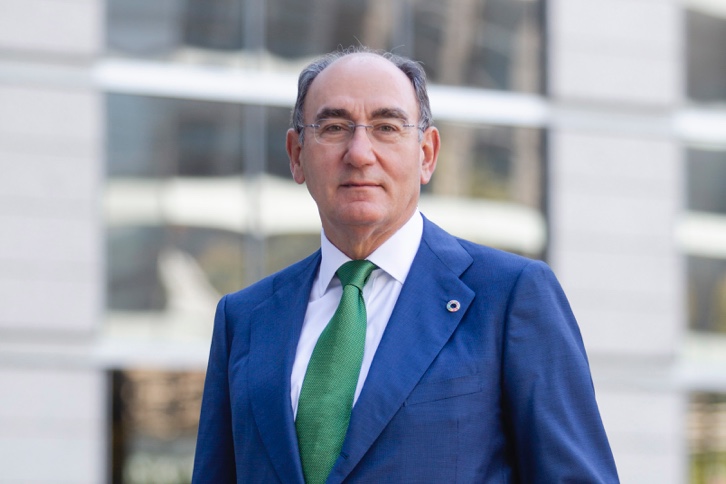
-
21/10/2021Sixteen writers share their vision of the future in '2030', the book sponsored by Iberdrola Authers Arturo Pérez Reverte and Soledad Puértolas have launched a book entitled '2030', a collaboration of 17 Spanish and Latin American writers who harness their imaginations to talk about the future in the year 2030 sponsored by Iberdrola and published by Zenda. The book, which can be downloaded free of charge, is a collection of stories with the common theme of 2030, the target year for achieving the Sustainable Development Goals (SDGs) defined by the United Nations. The book includes stories by Alberto Olmos, Ana Iris Simón, Andrés Trapiello, Antonio Lucas, Cristina Rivera Garza, Espido Freire, Eva García Sáenz de Urturi, José Ángel Mañas, Karina Sainz Borgo, Luisgé Martín, Luz Gabás, Manuel Jabois, María José Solano, Pedro Mairal, Rubén Amón and Soledad Puértolas, with a prologue by Leandro Pérez. At the book launch, which took place at the headquarters of the Royal Academy of Fine Arts of San Fernando, the Secretary of Iberdrola's Board of Directors, Julián Martínez Simancas, said that this latest collaboration between Zenda and Iberdrola has "succeeded in uniting the company's commitment to the 2030 Agenda with the promotion of culture and the digital transformation in the same publishing project". "The 2030 Agenda forms an integral part of the company's strategy, and is a central area of decision-making", said Martínez Simancas, who highlighted Iberdrola's stand-out goal to build "a more electric, healthy and accessible energy model" in collaboration with society and its stakeholders. Pérez Reverte praised Iberdrola's support for the Zenda publishing house, which is celebrating its fifth anniversary with more than one million monthly readers. Soledad Puértolas said that partnerships such as that between Zenda and Iberdrola should be more common in Spain, while Karina Sainz Borgo added that, "private companies are essential for culture to work". Iberdrola and Zenda have also launched their second youth competition, with a theme set in the year 2030, which is worth 3,000 euros and is open to young people born between 2004 and 2008. READ MORE








